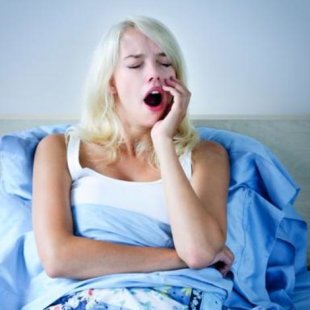 Imagine two women you know: One is your model of fitness success (She clearly knows how to slim down correctly and has the body to show for it), and the other is what you fear. This friend has her heart in the right place, but no matter how hard she works, she still struggles with the process and doesn't have the body she wants. The troubling part is that when you talk to both, they share a common approach:
Imagine two women you know: One is your model of fitness success (She clearly knows how to slim down correctly and has the body to show for it), and the other is what you fear. This friend has her heart in the right place, but no matter how hard she works, she still struggles with the process and doesn't have the body she wants. The troubling part is that when you talk to both, they share a common approach:1. They eat meals that focus on lean protein and vegetables.
2. They exercise at least three times per week, focusing on both weights and cardio.3. They know which foods are truly healthy and which they need to limit-and they do.
And yet one friend-the one who continues to struggle-can't maintain her focus. She has trouble controlling her hunger, always craves sweets, and, despite her biggest efforts in the gym, she doesn't seem to achieve the same results as someone else following the same program.The problem might seem obvious at first. After all, one woman strays from her diet more than the other. And if exercise "isn't working," it probably means she just doesn't really know how to train. Maybe it's genetics. Maybe she's lazy or lacks willpower. Or maybe, diet or exercise isn't the real problem.
Sleep Controls Your Diet
The debate about the best way to achieve a healthy weight always revolves around eating and movement. If you want to look better, the most common suggestion is "eat less and move more." But it's not that simple, or even accurate. Sometimes you want to eat less and move more, but it seems impossible to do so. And there might be a good reason: Between living your life, working, and exercising, you're forgetting to sleep enough. Or maybe, more importantly, you don't realize that sleep is the key to being rewarded for your diet and fitness efforts. According to the Centers for Disease Control and Prevention, more than 35 percent of people are sleep deprived. And when you consider that the statistic for obesity is nearly identical, it's easy to connect the dots and discover that the connection is not a coincidence.
Poor Sleep Changes Your Fat Cells
Think about the last time you had a bad night of sleep. How did you feel when you woke up? Exhausted. Dazed. Confused. Maybe even a little grumpy? It's not just your brain and body that feel that way-your fat cells do too. When your body is sleep deprived, it suffers from "metabolic grogginess." The term was coined by University of Chicago researchers who analyzed what happened after just four days of poor sleep-something that commonly happens during a busy week. One late night at work leads to two late nights at home, and next thing you know, you're in sleep debt.
But it's just four nights, so how bad could it be? You might be able to cope just fine. After all, coffee does wonders. But the hormones that control your fat cells don't feel the same way.
Within just four days of sleep deprivation, your body's ability to properly use insulin (the master storage hormone) becomes completely disrupted. In fact, the University of Chicago researchers found that insulin sensitivity dropped by more than 30 percent.
No comments:
Post a Comment